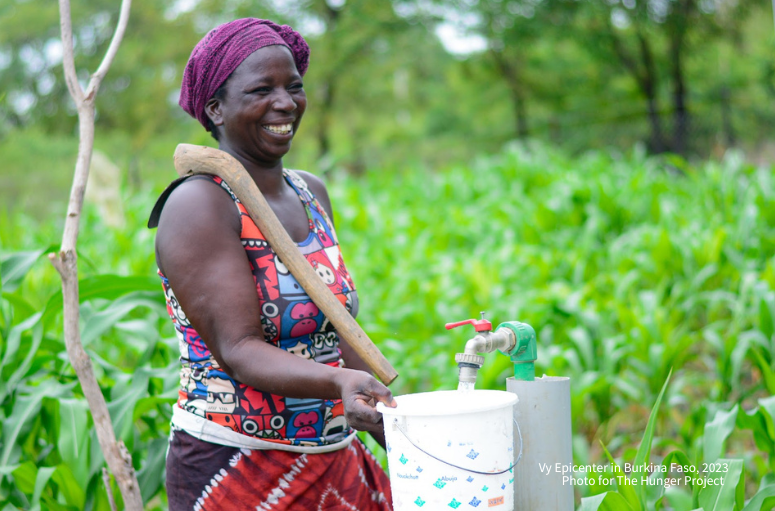Clean water is key to creating a world without hunger.
That’s why this year’s World Food Day is focused on the importance of clean, fresh water. It impacts what we eat, how we nourish our bodies and how we grow our food. Approximately 2.4 billion people in the world reside in water-stressed countries. Among those affected, women bear a disproportionate burden due to the scarcity of clean and safe water.
The majority of freshwater used globally supports agriculture. For many people living in hunger, agriculture is not just a way of life; it is their livelihood. Climate change is making water access unpredictable so the interdependence of agriculture and clean water leaves small-scale food producers very vulnerable.
“The climate crisis has made it more difficult to farm here, as the rain patterns have changed,” attests Issa, Animator and the Epicenter Committee President at Sonon-Guinagourou Epicenter in Benin.
Water and food are intricately linked
Without an adequate and reliable water supply, agriculture and food production become severely constrained. That’s why we partner with rural communities to improve water access, promote sanitation & hygiene and develop new clean water sources. Our locally-led trainings have built the capacity of farmers like Issa who are navigating challenges with water scarcity.
The Hunger Project-Benin training sessions help us to farm differently and to cope better with an unpredictable climate. As an animator, I have taken several trainings and now people see me as an expert. That makes me proud.
Issa, Animator and the Epicenter Committee President at Sonon-Guinagourou Epicenter in Benin
Learn more about what we do:
Promote Local Food Diversity
Our food consumption has a direct impact on water resources. We work with communities to identify native crops that thrive under local conditions. This helps reduce the need for complex irrigation systems and promotes biodiversity.
Practice Sustainable Farming
We work with our community partners to create and manage community demonstration farms. Farmers learn techniques to sustainably improve crop yields, providing entire communities with increased access to food. Through taking part in The Hunger Project programs, farmers like Issa, have learnt how to practice sustainable farming and to grow climate resistant crops.
Boost Water, Sanitation & Hygiene
We establish water project boards made up of community leaders who are trained by experts on how to monitor, maintain and repair water systems; training people in the use and repair of water pumps and generators; and training a core of local leaders in water safety and purification so they can lead workshops throughout the community and expand grassroots knowledge.

